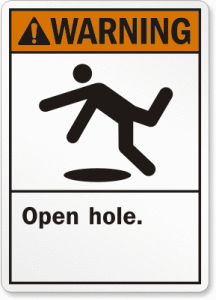Musings from Students of the Pardes Institute of Jewish Studies in Jerusalem
Posted on January 24, 2014 by Hirsch Fishman
X-posted from Eryn's blog post:
 Eryn London (Summer ’06 & ’07, Community Education ’10, Year ’10-’11, Hourly ’11-’12) made Aliya from New Jersey three years ago. She is currently studying in the Manhiga Hilchatit Program at Midreshet Lindenbaum, which is a 5 year advanced Halacha learning program. Beyond learning she also runs activities at a nursing home, teaches theatre, and directs plays on the side.
Eryn London (Summer ’06 & ’07, Community Education ’10, Year ’10-’11, Hourly ’11-’12) made Aliya from New Jersey three years ago. She is currently studying in the Manhiga Hilchatit Program at Midreshet Lindenbaum, which is a 5 year advanced Halacha learning program. Beyond learning she also runs activities at a nursing home, teaches theatre, and directs plays on the side.
The Divrei Mahamal blog is written by the women that are currently studying in the Manhiga Hilchatit Program. The blog should be updated weekly by one of the women. The d’vrei Torah will be written in English, Hebrew or French.
In Parshat Mishpatim we hear about a lot of laws. The Parasha starts with a list of laws, many of which have to do with how we are supposed to (or not supposed it) interact with others: what is our responsibility to the eved ivri; what negative interpersonal interactions can give someone the death penalty (from hitting one’s parent to kidnapping a person and selling them); basic torte law; making sure that one’s animals do not go into a neighbors yard; what is one’s responsibility with regards to watching another person’s belongings; not to persecute the widow, orphan or the “stranger”; and that we should lend money to those who need money in our community.
All of these laws are there to make sure that we are taking care of the people around us. It is my duty to make sure that things run in a fair way, but at the same time that people are not attacking each other and that those who need a bit of extra help are able to get it, hopefully without having to ask too much.
 In Shmot chapter 21, verses 33-34 we read:
In Shmot chapter 21, verses 33-34 we read:
When a man will open a pit, or when a man will dig a pit and he will not cover it, and an ox or a donkey fall into it, the owner of the pit shall make restitution; he shall return money to its owner and the dead body shall be his.
The Michat Chinuch (Mitzvah 53) explains this law in more detail:When a man will open a pit, or when a man will dig a pit and he will not cover it, and an ox or a donkey fall into it, the owner of the pit shall make restitution; he shall return money to its owner and the dead body shall be his.
One who digs a pit on public property, or digs one on private property but it goes into the public property, and it is deeper than 10 tefachim (approx. 3 feet) or it was already dug and he placed a cover, even if the pit is full of soft things, in any case if an animal fell into it and died, the owner of the pit must pay damages. And even if the pit is not his but he is the one who caused it to be open, it is stated in BT Baba Kama 29b and BT Pesachim 6b, there are two things that are not in a person’s hands but the Torah has it as if it is in their hands, and those are a pit in public property and hametz on Pesach.
This seems like a fair law – a person should be watching out for what they do to make sure that others are not hurt by their actions. Hizkuni (Shmot 21:33) quotes the Talmud Yerushalmi Baba Kama where it says that “one does not make a pit in a public place, unless when they cover it a wagon full of rocks is able to drive over it”. We need to make sure that our public spaces are easy to move around in, with the knowledge that at times we do need to cause a disruption in the public sphere.
Rashi on our verse asks why the verse specifies if an animal falls into the pit. He answers that we are supposed to learn from this that these rules apply specifically if an animal falls in, not if a person or other objects fall in. Hizkuni (Shmot 21:33) says that we don’t teach about a person falling in because they are bar da’at, meaning they are supposed to have knowledge and they should be watching where they are walking, but animals do not have this knowledge. The Minchat Chinuch (Mitzvah 53) says:
According to BT Baba Kama 28b, Rambam, Taz, Tur, and the Shulchan Aruch: if a person falls into a pit in a public property and dies the owner of the pit ispatur (exempt), but if a person falls and gets injured than he has to pay damages, even if he falls during the day.
In the end, it comes down to the fact that we have to be aware of how our actions can affect others. We cannot just create a hazard in the middle of a place where we know many people will be walking around and could get hurt. We must also be aware of the needs of the people around us, making sure that we are helping those who need to be helped. We must treat other people with respect and kindness. But we cannot nor should not relay on other people all the time – we need to be aware of our surroundings and take some responsibility for my own actions. While it is the responsibility of the pit owner to cover the pit so that I don’t fall in, it is also my responsibility to keep my eyes open and watch where I am going.